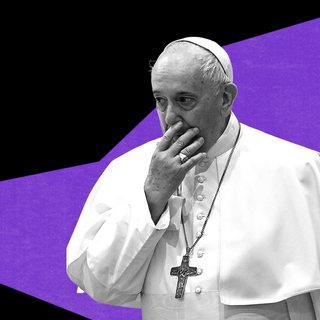More than 60% of faculty positions reserved for Scheduled Castes and Other Backward Castes, and almost 80% of those for Scheduled Tribes, are vacant in the Indian Institute of Management (IIM) across the country, Education Minister Ramesh Pokhriyal said Monday. His written response, to a question about university vacancies in the Lok Sabha session, highlights gaps in implementing faculty reservations at central education institutions like the IIMs.
Overall, more than half of the positions reserved for OBCs and about 40% of those for SCs and STs remain vacant across universities in the country, the Minister said.
“Vacancies in positions sanctioned for OBCs at various levels are caused by dynamic processes attributed … to retirements, resignations, deaths, deputations, expansion, and opening of new institutions,” the Minister explained. “Occurring of vacancies and filling up is a continuous process. The Ministry of Education and University Grants Commission (UGC) continuously monitors it with Universities.”
However, the data presented points to a lack of execution, particularly in the case of reserved categories. The Central Educational Institutions (Reservation in Teachers’ Cadre) Act, 2019, notified faculty reservations in central universities. However, out of the 6,000 vacant positions across 42 universities, 75% fall in reserved categories.
In response to another question, Pokhriyal said the vacancies were higher at the level of professors as compared to assistant professors. Only nine professor positions have been filled out of the 137 reserved for ST candidates, leaving 93% of these posts vacant.
According to a report in The Hindu, less than 1% of the 1,062 professors in central universities belonged to ST communities. Similarly, data from 2019 showed that less than 3% of those teaching at the IITs across the country were from reserved categories.
Related on The Swaddle:
IITs Ask to Be Exempt From Reservation for Faculty Hiring, Face Backlash From Student Groups
The government held central universities accountable for this lack of implementation. “The onus of filling up the teaching posts lies on Central Universities which are autonomous bodies created under acts of Parliament,” said Pokhriyal. In June 2019, the UGC had given universities a six-month deadline to fill these seats, failing which the UGC would withdraw grants given to these institutions. The process of filling up vacancies was to be monitored by the UGC and the then-Ministry of Human Resource Development. While the UGC urged all Indian central and state universities to fill vacant reserved teaching and non-teaching positions in October 2020, it is unclear if the UGC has taken (or plans to take) any action against erring universities.
The problem of limited representation in elite Indian institutions is well documented: in 2017, two researchers from IIM Bangalore wrote to other IIM directors to address a “serious” diversity problem in the institution. Out of the 512 IIM faculty members, they said, only two were from the SC category and none from an ST. “Until IIMs see themselves as public institutions with an implicit as well as an explicit social contract, we are unlikely to see any progress beyond rhetoric,” Deepak Malghan, one of the authors of the letter, told The Wire.
Notably, both IITs and IIMs have previously lobbied for an exemption from faculty quota requirements. Twenty IIMs last year wrote to the Ministry of Urban Development saying they wished to be exempted from reserving teaching positions for members of SCs, STs, OBCs, and Economically Weaker Sections (EWS). They argued that reservation could impact their ability to compete globally, The Wire reported. The representatives in their letter demanded they be added to the list of “Institutions of Excellence,” since that would allow them to not reserve positions for the four categories.
Similarly, an eight-member panel comprising IIT directors and registrars and government representatives had suggested in June 2020 that these institutes be exempt from caste-based reservations for faculty hiring. The panel cited a lack of qualified candidates from reserved communities in its report.
These recommendations received strong backlash from student groups within the IITs. “There exists sufficient data to suggest that the lack of qualified candidates from the reserved categories was never a reason for their lack of admissions in Ph.D. programs at the IITs,” IIT Bombay’s Ambedkar Periyar Phule Study Circle had noted in a statement. “It is the cut-off mark that is used to deny entry to eligible SC/ST/OBC students in campuses like IITs for years.”




